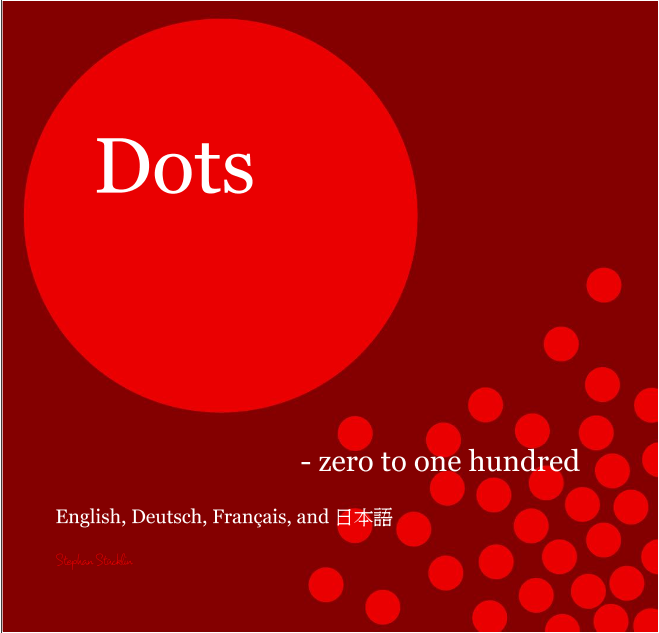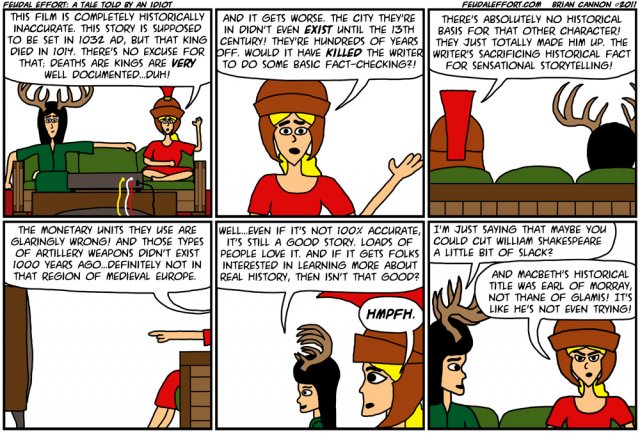What were you doing at 11-11-11 11:11:11?
I was washing dishes. I noticed the clock at 11:13.
Permalink | Read 2166 times | Comments (4)
Category Children & Family Issues: [first] [previous] [next] [newest]

Cultural differences. We're still reading the Sunday New York Times we picked up in Naples. The Sunday Times may cost a whopping $5, but there's a book's work of matierial to read.
From Russia with Lies should be read by anyone doing business with—or dating—someone from another culture. Author Elena Corokhova, a child of Communist Russia, explains vranyo, a culture of lies that everyone knows, but no one admits, are lies. Everyone except the naive foreigner, that is—and Russians born after perestroika.
Putin was lying to us, we knew he was lying, he knew we knew he was lying, but he kept lying anyway, and we pretended to believe him. ... While I envy this uncommunist generation, I do see one deficiency: They have lost the ability to detect a lie.
My husband works with people from many different cultures: north, south, east, west, and midwest in the U.S., and countries as different as China, India, Italy, Nigeria, and Australia. One of his Chinese colleagues told him candidly something everyone needs to know when dealing with China: culturally, it is not only acceptable, but admirable, to best a competitor by cheating and deception. If the victim is not Chinese, so much the better.
My in-laws lived and worked in Brazil some 30 years ago. Perhaps the culture has changed, but back then what we would call "taking bribes" was simply the way business was done. If you did not participate, not only did you not get your business accomplished, but you were considered ignorant and rude.
My point is not to be disrespectful of other cultures, and certainly not to imply that every Russian is a liar, every Chinese a cheat, and every Brazilian corrupt, but to ask two questions.
- How can we be "wise as serpents and harmless as doves" when interacting with foreign cultures? Acknowledge the risks in dealing with people whose mores differ from ours without being (or becoming) racist? Maintain our own integrity while adapting to life and work in a foreign land?
- What are the aspects of American culture that trip up foreigners? What makes it difficult to deal with Americans? What do we take for granted as "normal" that others consider bizarre, rude, or even immoral?
 A Rally I Can Believe In. I can't ever see myself participating in a Tea Party rally, much less the more chaotic and uncivil "Occupy" events. But if I'd been in the area, I'd have gladly taken part in the Raw Milk Freedom Riders' Caravan and Farm Food Freedom Rally on November 1st. I'd have made my first public act of civil disobedience, too, joining the mothers who bought raw milk (legally) in Pennsylvania and transported it (illegally) to Maryland, where they drank it in front of the Food and Drug Administration headquarters in Silver Spring. Speakers at the rally included Joel Salatin, David Gumpert, and other heroes of the battle for liberty as it touches what we eat, where it comes from, and how it is produced.
A Rally I Can Believe In. I can't ever see myself participating in a Tea Party rally, much less the more chaotic and uncivil "Occupy" events. But if I'd been in the area, I'd have gladly taken part in the Raw Milk Freedom Riders' Caravan and Farm Food Freedom Rally on November 1st. I'd have made my first public act of civil disobedience, too, joining the mothers who bought raw milk (legally) in Pennsylvania and transported it (illegally) to Maryland, where they drank it in front of the Food and Drug Administration headquarters in Silver Spring. Speakers at the rally included Joel Salatin, David Gumpert, and other heroes of the battle for liberty as it touches what we eat, where it comes from, and how it is produced.
The mission of the Farm Food Freedom Coalition is, "to inspire, empower and facilitate consumers into action until everyone can procure the foods of their choice from the producer of their choice." Here are some links for further information on the FFFC and the rally.
A good summary of the event from The Compleat Patient.
A pre-event post from the New England Cheesemaking Supply Company, with videos of some of the speakers (not from the rally).
Pictures from the rally (again at NECSC).
The Farm Food Freedom Coalition.
Is this a good place to point out that I am apparently incapable of understanding the Quick part of 7 Quick Takes Friday?
Okay, here's a quick one. Not many e-mail forwards are worth passing on, but I couldn't resist this. To understand its appeal, first you have to know something about my family tree. My grandfather, my father, and two of my siblings are engineers. So is one of our daughters, and both of our sons-in-law (who themselves come from engineering families). Most of the rest of us are mathematicians.
Election Day fun. I don't talk about politics all that often, and when I do, it may or may not tell you something about how I cast my ballots. For one thing, I try to elect the best person for the particular job, which may mean voting for someone who is not my first choice, or someone with whom I seriously disagree on matters that only tangentially impact his capacity for filling the office in question. For another, I really believe in the importance of the secret ballot. But today I'm making an exception.
I am a conservative Democrat (which is not quite an oxymoron). As such, I find myself more often than not these days voting against my own party. So it was with a peculiar kind of glee that this week I cast my ballot in our mayoral election for a LIBERAL DEMOCRAT. At least, that's what her opponent called her, in a blitzkrieg campaign that annoyed me enough I'd have voted against him in any case. But in actuality, I voted for the incumbent rather than against her opponent—and believe me, it's quite a pleasure to be able to cast a positive vote for a change. Ours is one of the nicest, most beautiful cities in the area, our taxes are low, and the city is debt-free. If it ain't broke, don't fix it seems like a pretty good conservative attitude to me.
Ten is the new two. That's how Free-Range Kids advocate Lenore Skenazy describes Amtrak's decision to raise the age at which a person can ride the train without an adult babysitter from eight to twelve. And 13- to 15-year-olds have severe restrictions as well. I can't help remembering our trip to Liechtenstein a few years ago, when we saw schoolchildren who were probably in the five to eight range travelling on public transportation—knowing where to get off, and more importantly, where not to get off—completely unaccompanied. Granted, that's not the same as a long train trip, but Amtrak's restrictions seem ridiculous to me.
What are your experiences with train travel and children? Somehow I can't picture the Europeans requiring a 15-year-old to wear a special wristband marking him as an unaccompanied minor—but I may be wrong.
Fighting ICD (Internet Compulsive Disorder). CNNHeath asks, Does life online give you "popcorn brain"? and answers, alas, in the affirmative. It's of particular concern to me because most of the work I do requires using the computer. (Not that people did not, for example, do genealogy research before computers were invented, but it would be silly not to use this most helpful of tools now that we have it.) I imagine there's a difference between what happens to the brain when you use the computer for research and when you use it for Facebook or to play an interactive multiplayer game, but that's not clear.
[S]tudies show multitasking on the Internet can make you forget how to read human emotions. ... "Human interaction is a learned skill, and they don't get to practice it enough."
The human brain is wired to crave the instant gratification, fast pace, and unpredictability of technology. ... "I never know what the next tweet is going to be. ... But I know what's waiting for me in my garden." [Who needs the Internet for this? All you need is a few children around the house.]
"We can't just sit quietly and wait for a bus, and that's too bad, because our brains need that down time to rest, to process things." [Not me, despite all my computer use. I'm more than happy to sit quietly and process things. But with music and, increasingly, video blaring everywhere (even on buses), it's not easy to do.]
Over time, and with enough Internet usage, the structure of our brains can actually physically change. ... Researchers in China did MRIs on the brains of 18 college students who spent about 10 hours a day online. Compared with a control group who spent less than two hours a day online, these students had less gray matter, the thinking part of the brain.
Not that any of this is the reason I'm announcing a blogging slowdown. The next three months will be extremely busy for me, so my "7 Quick Takes" may not happen every Friday for a while. I may have to adopt IrishOboe's "7 Quick Thanks." :) I'm not disappearing entirely—writing is actually one of my most important vehicles for the above-mentioned processing time. But for anything involving an online presence (blogging, Facebook, e-mail) I'll be more than usually unpredictable for a while.
It's time to rebuild some of that grey matter, as well as real-life relationships.
And here's a bonus. How fitting for a special day to fall on a special date. For veterans of all wars, all current and past members of our armed forces, and all whose calling is to stand between others and harm, including those among our friends and family who serve as fire, ambulance, and police First Responders, I offer my favorite verse of our national anthem.
Oh! thus be it ever, when free men shall stand
Between their loved home and the war's desolation!
Blest with vict'ry and peace, may the heav'n-rescued land
Praise the Pow'r that hath made and preserved us a nation.
Then conquer we must, when our cause it is just,
And this be our motto: "In God is our trust."
And the star-spangled banner in triumph shall wave
O'er the land of the free and the home of the brave!
For more Quick Takes, visit Conversion Diary!
Permalink | Read 4543 times | Comments (4)
Category Random Musings: [first] [previous] [next] [newest]
The Priority Mail Large Video Box (O-1096L) may be the U.S. Postal Service's best kept secret. It's not a very big box (9.25" x 6.25" x 2"), but it holds quite a bit more than the Small Flat-Rate Box, and if you're shipping internationally—or at least to Switzerland; I haven't had need to try any other countries recently—it's the same price.
You can get the boxes for free from the USPS, too. The trick is knowing what to order. The box is O-1096L, called "Priority Mail Large Video Box." You see, it's not flat rate domesticaly, only internationally. But the kind USPS lady on the phone—whom I called in desperation, being unable to find a "flat rate" version among their shipping supplies— assured me that this is the right box to use, though she admitted that some local post offices haven't gotten the word yet that it's flat rate for international shipments. I've used it successfully twice so far.
It's a real bargain over the regular Priority Mail or First Class International prices. If you print the postage online, the cost is even less, and you can fill out and print the Customs forms at the same time. (The form from the post office is a bit simpler, however.)
UPDATE: Apparently most post offices don't carry these boxes. You can get them free from USPS online, but it does take time.
UPDATE 2: I forgot to mention that in order to get the $13.25 price you must pay for the postage online and print it yourself; if you pay at the post office, the price is $13.95. We've found it well worthwhile to set up the ability to pay online, as the price is almost always better.
UPDATE 3: Did I mention that this is the Postal Services best-kept secret? Unfortunately, they're also keeping it from many of their employees. One person I know went to two different post offices, only to be told each time that the postage cost for her package would be over $30, because the box doesn't say "Flat Rate." What's more, they refused to call, or look it up online, although one branch said they'd look at a printout if she brought one.
Later, when she herself called the main USPS customer service, the representative confirmed the flat rate (after sighing, "Oh, the Video Box problem again"), but added, "Good luck convincing a local post office if they don't believe it. It's at their discretion whether to accept it or not."
WHAT??? The local post office can decide, willy-nilly, what to charge for the U.S. mail? This is carrying privatization a bit too far, don't you think? Actually, I don't believe it. She's going to try a third, larger, post office (after calling ahead, and bringing printouts with her just in case).
I think the wonderful folks at our own local post office deserve a large plate of Christmas cookies this year: they're always friendly, always helpful, and they've never given me any trouble.with the Large Video International Flat Rate Box!
UPDATE 4: I half take back my harsh words in Update 3. The post office that said they'd consider changing their minds if they saw proof apparently decided to look it up themselves, and today gave almost no trouble: The first clerk refused, but the one next to him overheard and said, "No, no, it's okay, she's right. We looked it up." It would have been nicer if they'd been willing to look it up the first time, but at least they're all educated now.
UPDATE 5: As you can see by the comments below, people are still having trouble with this, depending which post office they use. As I said, "Educating the world, one post office at a time." The bad news is that, since the recent postal rate increase, the cost of the flat-rate box has risen considerably. It is now $16.95, with no discount for paying online. :( But it's still better than First Class (currently the least expensive international option (at least to Switzerland, and I'm assuming to most countries) if your package weighs more than 1 pound 12 ounces.
UPDATE 6: (12/14/13) Well, it once was a great deal. Now it's $23.95. Unfortunately, I still have to call that a reasonably good deal—compared with other overseas rates. The demise of international book rate, and then international parcel post ("boat rate") has been a sore trial for those with family overseas.
UPDATE 7: (3/14/16) I don't mind occasionally paying more in postage than the value of the item sent. Otherwise I'd never send homemade cookies, or Hallowe'en candy surprises. But the cost of this box, which is still in most cases the least expensive option, is has now risen to $33.95!
Permalink | Read 16425 times | Comments (22)
Category Everyday Life: [first] [previous] [next] [newest]
Our son-in-law, Stephan, has an artist's eye, and it shows in this book he created for our grandson, Joseph. He has published it, in three versions, through Blurb, so anyone may order a copy.
The inspiration was the absolute delight Joseph has shown, from a very young age, in the "math dot cards" from Glenn Doman's How to Teach Your Baby Math program, and his joy in reading books that show an object along with its name. As you can see, on the left side of the page is the numerical form of a number, with the written form in four languages (English, German, French, and Japanese), while the right side shows the number respresented by red dots.
Now Joseph will be able to examine his beloved dots whenever he likes.
Because there's no getting around the fact that specialty books are expensive, Stephan has produced three versions:
- The premier, full-length edition ($69.95) is hardcover and includes all numbers from zero to one hundred.
- The mid-length edition is less expensive ($47.95), hardcover, and includes all numbers from zero to fifty, plus the tens from sixty to one hundred.
- The bargain edition ($24.95) is softcover and includes all numbers from zero to twenty, plus the tens from thirty to one hundred.
This video was from six months ago, when Joseph was ten months old, but you can see his enthusiasm.
Stephan's Dots in Books page will keep us updated on how Joseph reacts to the book. You can also leave comments and suggestions there. Maybe there'll even be a new video some day.
Congratulations to my brother and sister-in-law, who not only managed to get a 25-hour anniversary, but have much of the state honoring them with romantic candlelight.
'Tis better to light a single candle than to curse the darkness. A kerosene heater helps, too.
Permalink | Read 2621 times | Comments (1)
Category Everyday Life: [first] [previous] [next] [newest]
I'd heard of FlyLady before, with her system for helping those of us who were born creative—i.e. distractible and disorganized. But I was quickly turned off by her system. Perhaps it was her annoying perkiness, which slaps you in the face, even in the design and colors of her website. More likely she lost me at Beginner Baby Step #2, which requires us to put on shoes before we even begin the day. I don't wear shoes any more than is absolutely necessary, and we have a shoes-off-at-the-door policy in our house. (Not for guests, so don't let that stop you from visiting.) On the other hand, perhaps the requirement to wear shoes until the work is done would do wonders for my productivity, who knows? Anyway, I filed FlyLady under "Somewhat Interesting, Maybe, Someday" and there she has remained.
But Janet has been wiser and stayed with the program long enough to find some great wheat in the chaff. For example, the famous "Swish & Swipe" (which I mis-typed as "Swiss & Swipe" the first time) for the bathrooms. Janet taught it to me when she was here. I adapted it to my own use, and I LOVE IT.
Here's how I do Swish & Swipe each morning. It's supposed to take two minutes; I'm not quite that fast, but it's not much more. (More)
Permalink | Read 4006 times | Comments (5)
Category Everyday Life: [first] [previous] [next] [newest]

One thing I learned from our stay at a Waldorf Astoria: There's a limit to how much luxury I can appreciate. I've become leery of cheap motels (especially along the notorious I-95 corridor) with their reputation as the lodging of choice for bedbugs and manufacturers of crack cocaine, but to stay at a Hampton Inn (Hilton's low-rent district) or Fairfield Inn (Marriot's) is all the luxury I want. For me, the higher-end hotels add little. In fact, they take away: The big guys charge (a lot) for amenities that matter to me, whereas the price of a room at their poorer relations includes unlimited tea, cocoa, and coffee (and sometimes cookies!) in the lobby, a breakfast buffet, and in-room Internet. It seems the more you pay for your room, the more they expect you to pay in miscellaneous charges. Mind you, the higher-end hotels are nice, just not worth the extra cost.
One notable difference between the Waldorf and a Hampton Inn that did matter to me: Instead of a USA Today at the door in the morning, we received the Sunday New York Times. Now there's a newspaper that still carries content! About a month's worth of reading, I'd say. Part of that content is the Sunday Times crossword puzzle, which has always intimidated me as the epitome of difficulty. But no more. It was no harder than the three-star (highest difficulty) puzzles in my World of Puzzles magazine. And, alas, no more free of pop culture clues. Reference an obscure vocabulary word or something in Shakespeare I don't know, and I'll happily look it up and thank you for the lesson—but spare me current movie and popular song trivia, please.
Gee, thanks, bank. Here's the good news from one of our credit card companies:
We are always looking for new ways to meet your borrowing needs on your terms. Effective January 15, 2012, you may receive new promotional offers that include an increased Minimum Payment Due, which can help you pay the promotional balance down faster.
Silly me, I thought you could always pay your balance down faster by remitting more than the minimum payment due.
George Orwell would be proud.
Babies are born geniuses, as Buckminster Fuller and observant parents could tell you. Scientists are finally catching up. Here's Looking at You, Kid is a not-to-be-missed article on the research of Richard Aslin, professor of Brain and Cognitive Sciences at the University of Rochester. Advanced technology has enabled his team to back mothers' intuition with reproducible data.
[B]abies just months old have mental capacities formerly believed to be the domain of children much older. “We knew babies could learn—I mean, obviously they can learn. Your grandmother knows that,” Aslin says. “It’s the rapidity, the ease, with which they learn things that I think has just been startling.”
The key is measuring and interpreting babies' eye-gaze patterns. For example, the idea of object permanence—that something continues to exist even when it is hidden—had been thought to develop by nine or ten months, because that's when a child will reach out and reveal a covered object. It turns out that children as young as two months, who don't have the physical ability to remove a cover, already understand the concept.
A baby's language-learning capacity is particularly dramatic (emphasis mine):
[A recent study] conducted on infants, showing them multiple objects and giving them the name of the object in a sentence, demonstrated that they could pick out the object and learn its name by six months of age rather than the expected 17 months. While other such studies conducted elsewhere have given babies the words in isolation rather than in the context of sentences, ... the complexity of conditions in [this] experiment may account for the babies’ performance—the more complicated task of picking the word out of the sentence may actually have been easier for them because that’s the way they hear language every day.
[In another study, researchers] brought babies to the lab, where the children encountered a simple nonsense language the researchers had created to ensure they wouldn’t bring any prior knowledge to bear on the experiment. “We wanted to find out what they could learn in the lab, not what they’d already learned in the environment,” Aslin says. The children listened to the language, “and then we tested them to see whether or not they’d learned the underlying structure of this little language.” They had.
“They learned the language in just a couple of minutes—and just by listening. Nobody was telling them what to listen to. They were only eight months old.”
When you consider that only 50 - 60 years ago scientists were asserting that newborns are blind and deaf, it's a good thing that mothers have been in charge of their babies all along.
The Stradivarius of Windchimes. A scene from our recent trip to the gift shop at Bok Tower Gardens:
"Come listen to these beautiful windchimes! Aren't they wonderful? Just don't look at the price; leave it to me to desire the most expensive chimes on display."
"But you hate windchimes."
"Are you crazy? I love windchimes! I have since childhood."
"But I disinctly remember you saying how much you dislike them."
"Hrumph. Must have been one of your other girlfriends."
After this exchange with my husband, we determined that perhaps he was remembering a conversation with his sister, or our friend who is also named Linda, or our neighbor. I sure hope it wasn't our neighbor, because someday there will be windchimes gracing our back porch. I gravitate to any windchime display I see, listening and pondering, though I haven't yet gone so far as to make a decision. Maybe now that we have that little misunderstanding cleared up....
The chimes that so captured my heart are made by Music of the Spheres in Austin, Texas. Choose "Chime Tunings" from their main menu, and you can hear recordings of their chimes in various tunings (Pentatonic, Quartal, Chinese, Mongolian. Westminster, Hawaiian, Japanese, Balinese, Whole Tone, Aquarian, Gypsy) and sizes (Soprano, Mezzo-Soprano, Alto, Tenor, Bass, and more). Here's a link to the Japanese mezzo-soprano. And the Gypsy soprano. I can't stop myself: The Whole-Tone tenor.
The price? There's more than one reason they're called the Stradivarius of Windchimes: from $90 for a Soprano (any tuning) to $2950 (plus shipping) for the 200-pound Basso Profundo.
Educators, please don't miss this post on innovation from the Occasional CEO.
Children in America used to want to become cowboys and Indians, doctors and firemen, astronauts and acrobats. Now they want to become entrepreneurs and innovators. They are told they must change the world, often before they enter it.
But 90% of the population should not become innovators.
It’s not because they can’t do it well, though that’s possible too. It’s just that innovation can cause great damage to the things we love. To the guy making the fries at McDonalds or the pumpkin spice latte at Starbucks: Don’t innovate. To the person building the next lot of iPhones from which I’ll be purchasing one: Please don’t innovate. To my tax accountant: Do Not innovate. The mechanic fixing my car. The pilot flying my plane. To the fine people at Apple: For goodness sake, stop sending me updates and new operating systems. I hate em. Just when I get everything the way I like, you innovate me into something that costs me two hours at the Apple Bar. Where, incidentally, I want zero innovation from your hip kids in blue shirts. Just follow the FAQs and fix my iPad.
When we complain that schools are not teaching our kids to innovate, I say: Bravo! People who can innovate will always find ways to innovate, while most of the rest of us need a serious tutorial in how to follow directions. Show up on time. Do our jobs. That’s not something that comes naturally for many human beings.
There’s nothing less intelligent or inferior about people who practice consistency. Consistency takes extraordinary talent, just like innovation. ... We have made innovation glamorous and consistency somehow mundane and less worthwhile. That’s our fault, not the fault of talented people whose consistency, attention to order, willingness to show up all the time and insistence on a little good ol' tradition improves our lives.
Here endeth the lesson; the following is my editorial comment:
Children do not need to be taught to be innovators and inventors. They need to be taught the facts and skills that will become the tools with which they can innovate, practice consistency, or both. Then they need freedom and time and opportunities to learn to use those tools effectively.
Those of you who enjoyed the TED talk by Temple Grandin, or the movie about her life, or any of her books, will probably like this TED lecture on the importance of perception, by Daniel Tammet, a high-functioning, synaesthetic, autistic savant who is also an artist and a writer.
Our personal perceptions ... are at the heart of how we acquire knowledge. Aesthetic judgements, rather than abstract reasoning, guide and shape the process by which we all come to know what we know.
For more Quick Takes, visit Conversion Diary!
Permalink | Read 2645 times | Comments (7)
Category Random Musings: [first] [previous] [next] [newest]
We went to Naples a couple of weekends ago.
No, not that Naples, although there are some superficial similarities, such as a location on the southwest coast of similarly-shaped peninsulas, a warm climate, and inhabitants who speak both English and a Romance language.
We were nearing the expiration of the hotel voucher we'd earned by listening to a timeshare presentation in Hawaii, and chose to use it at the Naples Grande Beach Resort, a Waldorf Astoria hotel in Naples, Florida. You see, it was a $200 voucher, but good only for the hotel room, and only for one night. Hence the pricy hotel.
It’s a four-hour trip—about like driving from Florence if you’re thinking of the other peninsula—and we made it longer by stopping in Lake Wales for several hours. That’s where the lovely Bok Tower Gardens are. (As usual, click on a picture for a larger image.)
One of my favorite places in the Gardens is the Window on the Pond, where we can observe the wildlife from inside a duck blind style shelter. Corn kernels are scattered on some large tree stumps to encourage the birds to come close. But as with any bird feeder....
The next day we headed for nearby Marco Island, where we enjoyed a walk at Tigertail Beach Park. Much of the flora was identified, but not this gorgeous purple grass:
These Aqua-Cycles, suitable for sand and water exploration, were available for rent. We did not try them out, but immediately thought, “Wouldn’t that be fun at the Maggie P!”
But lest any nephews or grandchildren (or uncles) get too excited, when we later investigated we learned that it would take over $3000 to make that dream come true! Not this Christmas, folks.
After an ice cream treat at the beach café, we turned our GPS toward home and drew the curtain on a much-needed weekend of R&R.
Bah, humbug. We live in very safe, sidewalked neighborhood of over 900 homes, and to our door tonight came one, count 'em, ONE boy who might have been in middle school, a handful of high school students, and two ADULTS begging for candy! One had a pacifier-sucking toddler in a stroller, presumably as her excuse for trick-or-treating, though in this case I have to hope she was planning to eat the candy herself. Nothing interesting in the way of costumes.
Maybe next year we'll save on candy and just keep the lights off. We have more leftover candy than our grandkids could (read, "would be allowed to") eat in a year. It's not your grandmother's Hallowe'en anymore.
On a cheerier note, in a neighborhood nearby the child-like inhabitants had a glorious time celebrating the day, which is the real reason for this post. Enjoy! (H/T a WWMB friend.)
Permalink | Read 2630 times | Comments (3)
Category Just for Fun: [first] [previous] [next] [newest]
What was Hallowe’en like when you were a little girl, Grandma? 
No one has as yet asked me that question, but if things run true to form for most Americans, someone will, someday, after I am past being able to respond. So I will answer it now.
My Hallowe’en formative years were in the 1950s and early 60s, in a small village in upstate New York. Contrary to what we’d like to believe, it was not an idyllic and crime-free time. One of my first (and worst) Hallowe’en memories was of the teenaged thugs who thundered onto our porch, grabbed our carefully-carved jack-o-lanterns, and smashed them to bits. I lived a sheltered life: this was my first view of senseless, wanton destruction; my first encounter with people who get pleasure from breaking the hearts of little children. Our tiny village did not escape teen gangs and vandalism, which seemed to be more widespread, if much less dangerous, in those days. At least they attacked property, not people.
That was the only scary thing about our Hallowe’ens.
The most important difference between Hallowe’en then and now is that the occasion was first, last, and always for children. A few adults dressed in costume for the neighborhood parade and party, but the purpose of the event was to entertain the children. The only excuse for anyone over 12 going out trick-or-treating was to escort the younger ones—every once in a while a compassionate homeowner would give us a piece of candy, too. Now, when high schoolers come to my door, I give them candy if they’ve made any attempt at a costume, but I pity them, that at their age they are begging door-to-door for candy instead of helping younger children to have a good time.
On the other hand, teenaged trick-or-treaters is a clear improvement over teenaged vandals.
The Hallowe’en season began several weeks in advance of October 31. No, not because Hallowe’en stores began popping up all over town, and shelves everywhere sprouted candy in yellow and orange. Because of the costumes. Store-bought costumes were largely unavailable, and anyway, who would have wanted one? Hallowe’en was an occasion for great creativity. Merely deciding what to be could take a month. (Decisiveness, I’ll admit, was never my strong suit). Those who come to our door today are mostly beings—a cat, a princess, a Star Wars character—but we favored things: one might be a rocket ship, a pencil, or the whole Mad Hatter’s Tea Party (no relation to the present-day Tea Party, as mad—in either sense—as they may be). The challenge was to create a costume from whatever we could scrounge around the house without actually having to spend money. No problem—we had not yet forgotten what any five-year-old knows: the cardboard box is the most universally useful of all materials. (More)
Permalink | Read 3354 times | Comments (12)
Category Genealogy: [first] [previous] [next] [newest] Children & Family Issues: [first] [previous] [next] [newest] Random Musings: [first] [previous] [next] [newest] Everyday Life: [first] [previous] [next] [newest]
I love this Feudal Effort strip! (Click on the image for a larger version.) It describes exactly the attitude I have when watching quasi-historical movies. Not to mention movies based on books. ("Would it have hurt them to actually read the book?")
I do cut Shakespeare some slack, however. He didn't have the same access to sources as we do, and anyway, he certainly didn't have time to spare. It just might have killed him to do basic fact-checking.
Speaking of historical interest, Duncan I was my 28th great-grandfather. :)
Permalink | Read 2733 times | Comments (0)
Category Just for Fun: [first] [previous] [next] [newest]
So. I just spent all afternoon creating a Hallowe'en post. A perfectly adequate Hallowe'en post.
On the way to the grocery store, I realized that it needs to be completely re-written. And I'm going to do it.
If Thomas Mann was correct in saying that a writer is a person for whom writing is more difficult than it is for other people, maybe I really am on my way to becoming one.
Permalink | Read 2507 times | Comments (0)
Category Everyday Life: [first] [previous] [next] [newest]

Porter planted a wildflower garden in our front yard. The excuse was to cover a patch where the grass, and even the green weeds, had long since stopped growing. We think it is a definite improvement over boring grass! (Click on the image to enlarge it.)
Now that my daughter's birthday has come and gone, I can reveal the exciting news: Speculoos à Tartiner, a.k.a. Biscoff Spread, is now available at Publix!!! And at a couple of other local stores as well. This pleasant development came only just in time: Our supply, generously imported for my birthday—from France via Switzerland—was running dangerously low. Oddly enough, it's in the peanut butter section; perhaps not so oddly, as that's where they keep the Nutella, too.
If you've never experienced a Biscoff cookie, you're missing one of life's higher pleasures. (For a long time I thought they were limited to flights on Delta Airlines, but the grocery store now sells the cookies, too.) Speculoos à Tartiner is even better. Making a spread out of cookies was a brilliant idea. Think of the possibilities: Oreo, chocolate chip, Girl Scout Thin Mint....
Seeds are amazing. When we feed our worms, it's generally with food that has been chopped rather vigorously, as that makes it more digestible for them, and hence they convert garbage to fertilizer at a faster rate. Nonetheless, after one butternut squash meal last year, I noticed a large number of sprouts that grew vigorously in the worm bin, despite maceration and a total lack of sunlight. Such persistence deserves some reward, so I rescued a few of the seedlings and planted them in our garden.
The plants appeared to thrive, putting forth healthy leaves and a multitude of blossoms. However, perhaps due to it being the wrong season for growing most vegetables in Florida (too hot), or our persistent nematode problem, or a lack of water when we were on vacation—for whatever reason, the fruit that set would grow for a little while, then drop off. The three squash you see here were the entire crop. Even the largest is much smaller than those you see in the grocery store.
When cut open, the smallest was revealed to be too dry for use, but I cleaned and cooked the other two. What a surprise! The largest was very good, and the middle-sized (which was actually quite small) was the most wonderful butternut squash either of us had ever tasted.
My view of zucchini completely changed once I realized it was better to pick them small than large, and now the grocery stores have also realized that bigger isn't better. But I can't buy butternut squash this size to determine if that's what made our squash taste so good. Perhaps we'll have to try growing our own again, in a different season.
Picking squash before it is fully grown may be a good idea, but the same is not true of plucking human babies prematurely from the womb. The steady rise in mothers and doctors who believe otherwise has prompted the March of Dimes to campaign against elective Caesarians and labor inductions before the 39th week of gestation.
Studies have shown that as many as 36 percent of elective deliveries now occur before 39 weeks, and many of these early deliveries are contributing to an unacceptable number of premature births and avoidable, costly complications. ... This is not to suggest that women should panic if labor begins earlier on its own. “It’s a whole different story when a woman goes into labor early than when labor is induced" ... [T]he textbook definition of “term pregnancy” as one that lasts from 37 to 41 weeks “is arbitrary—it has no biological basis. If a woman’s water hasn’t broken, if labor hasn’t begun on its own, if there are no medical or obstetrical problems, there’s no reason for a woman to be delivered before 39 weeks.” ... The recommendation applies not just to women whose labor is induced, but also to those having a scheduled Caesarean delivery. Too often, women are mistaken about when they got pregnant, which can throw off the calculation of their due date. Even when a “dating” is done during the first trimester of pregnancy, there can be as much as a two-week margin of error.
Why on earth would someone without medical complications want to deliver a baby prematurely? (Besides the obvious discomforts of late pregnancy, that is?)
Well-educated women may be more inclined to want to schedule birth at a convenient time for themselves and other family members. Doctors, too, may suggest an elective delivery so that birth occurs at a time that best suits their schedules, including office hours and vacation times. Sometimes doctors, fearing a malpractice suit if something should go wrong if a pregnancy proceeds to term, choose to deliver babies early when they are alive and well.
The March of Dimes wants to make the "well-educated" mothers more educated about the dangers of induction and elective Caesareans, confident that no mother will deliberately choose convenience over the long-term health of her child. Sounds good to me. Maybe they should enlist the help of midwives, who have been preaching against such practices for a long time.
Do you have trouble falling asleep? Perhaps you should ditch the Ambien and reach for an ice pack. Researchers from the University of Pittsburgh designed special "cooling caps" and studied the sleep patterns of volunteers. Why? Insomnia is associated with increased metabolism in the frontal cortex, and cooling decreases the metabolism.
Patients with insomnia who were treated at maximum cooling intensity for the whole night took about 13 minutes to fall asleep and slept 89% of the time that they were in bed, the researchers said. That's similar to the sleep enjoyed by healthy study subjects who didn't have insomnia (who took 16 minutes to fall asleep and also slept 89% of the time).
Maybe it's just a placebo effect for me, but an ice pack really does help me fall asleep when my brain won't get out of high gear.
Speaking of drugs, it turns out that cannabis can induce symptoms of schizophrenia in healthy people. Healthy rats, too:
[T]he drug completely disrupted coordinated brain waves, which are essential for memory and decision-making, in the area across the hippocampus and prefrontal cortex. ... The resulting brain activity was uncoordinated and inaccurate ... The rats exposed to the cannabis-like drug were left unable to make accurate decisions....
Having grown up in the infamous 1960's, let me just say that this explains a lot about modern American society. :)
Here's a 7.5-minute video about a mood-enhancer with positive effects on your brain. It makes you happier, it makes others happier, it makes them think more positively about you, it has no calories, and it's absolutely free. You could try to listen to Ron Gutman's TED talk without smiling, but I wouldn't recommend it. It may be the healthiest thing you do all day.
For more Quick Takes, visit Conversion Diary!
Permalink | Read 3421 times | Comments (4)
Category Random Musings: [first] [previous] [next] [newest]
This was just posted on Free-Range Kids, and deserves to go viral. So I'm doing my part. The author, Darreby Ambler, is a writer and mother of three from Bath, Maine.
These were the travel rules we used with our kids when they were smaller. They are now 15, 19, and 21, and travel independently and joyfully around the world. (You can tell from the rules that it wasn’t always this way! Hang in there, parents!)
Ambler Family Travel Rules and Responsibilities
- It’s good to talk to strangers. The outside world is full of them. The place you don’t have to deal with them is at home, which is where people who can’t cope with strangers will stay next time.
- Each traveler is responsible for finding things to be excited about, and sharing that enthusiasm.
- If the enthusiasm of others embarrasses you, pretend otherwise. Being cool is dull, except in a sports car.
- Unusual foods are part of the point.
- Staying home is usually more comfortable than traveling, but traveling is more interesting. Prioritize well.
- Travel disruptions are normal and a good way to show your readiness for more challenging adventures.
- Remember that your dislikes do not make interesting conversation.
- Wash your hands. You have no immunity to foreign germs. Throwing up is not interesting.
- You have travel in your future that you can not even imagine. Adhering to these guidelines makes you eligible for such travel.
What's the point of having a camera that takes videos if you can't share them? Hence my venture into the world of YouTube as something more than a bystander. If this one works, you can expect more from time to time. This is Joseph, two months ago, playing on our brachiation ladder.
Permalink | Read 2645 times | Comments (2)
Category Everyday Life: [first] [previous] [next] [newest]

















